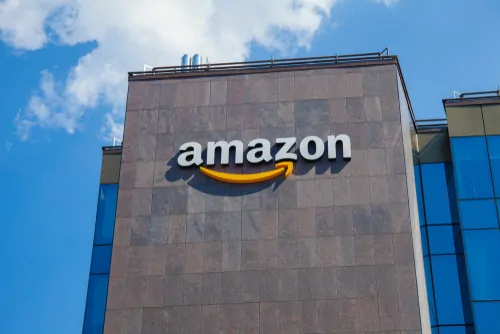
After several months of lining America’s cities up for a corporate beauty pageant, Amazon announced that its long-teased second base of operations known as HQ2 would actually be split two ways between Washington D.C. and New York City. Maybe you’ve heard of them.
At first blush, it was a big win for two cities not in any serious need of one, since Amazon had framed its hunt for HQ2 not unlike Willy Wonka seeking out an heir for his chocolate factory, promising huge economic windfalls. “We expect HQ2 to be a full equal to our Seattle headquarters,” Amazon founder Jeff Bezos said in a statement. “Amazon HQ2 will bring billions of dollars in upfront and ongoing investments, and tens of thousands of high-paying jobs. We’re excited to find a second home.”
Big time political leaders were dutifully excited, with New York Mayor Bill de Blasio and Virginia Governor Ralph Northam trotting out rosy statements of gratitude upon the announcements. But other than them, Amazon looks to be facing a chilly reception. Reactions from many residents and local leaders appear to be more upset than honored. What gives?
The big frustration appears to be the financial incentives being offered to Bezos and Co.
In the case of New York City, the Big Apple is facing some serious infrastructure issues, most famously in its public transit system, and plenty of New Yorkers feel that it’s an odd time to be welcoming in a company by offering it $1.3 billion in tax breaks in addition to another billion and a half dollars in something the state government called “performance-based direct incentives.”
This comes on the heels of a big No to Amazon HQ2 in Long Island campaign that combined the voices of local community groups with other political leaders to voice their opposition.
“You should focus on pushing Amazon to be a better corporate citizen and improving how it treats communities and workers,” the group said in a letter to de Blasio. “You should also ensure that this multibillion-dollar company, [which] already has a huge presence in New York, does not receive financial incentives simply for doing business here. New York communities are facing massive cuts to public goods and services, and working families are trying to make ends meet.”
“What we are seeing is a potential massive giveaway of taxpayer dollars for the benefit of the richest man in the world and New York State real estate developers,” Deborah Axt, the co-executive director of the activist group Make the Road New York told Vox. “We do not need to be lining the pockets of the real estate moguls who control this state’s politics.”
Voices were just as opposed in Washington D.C., where Amazon appears to have talked local leaders into letting the company rebrand Crystal City as the somewhat ominously named Northern Landing for reasons that aren’t completely clear.
Local activists launched a website called Obviously Not DC that attempted to make a case for political leaders to put whatever money they’d be sacrificing for HQ2 into services for the homeless and immigrants.
A quick look at the available data on Amazon’s potential impact on these cities shows that the critics have some merit. While Amazon boasts that its presence would bring jobs and boost the local economy, it hasn’t been quite that simple in Seattle, the site of Amazon’s current headquarters. There, rent has climbed 31 percent and home prices have jumped 73 percent in the last five years. This hasn’t exactly been helpful for Seattle’s homelessness crisis, which has only grown worse in the wake of Amazon’s growth. In fact, Amazon just recently helped spike a corporate tax that would have gone to funding for affordable housing.
There’s little doubt that Amazon’s new headquarters will bring a lot of jobs to their new communities — about 25,000 per city, Vox calculates — but whether or not those jobs will pay fair wages or be offered to people in the local community is anyone’s guess. Amazon has taken criticism on its employee wages, although the recently pledged to raise their minimum wage to $15 an hour for all U.S. employees. Will they also pledge to solving other negative consequences their presence brings to cities? Time will tell.






















